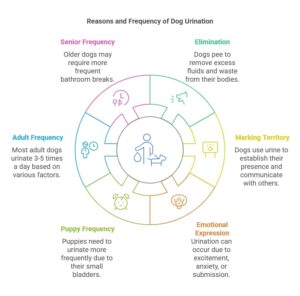New Zealand has announced a significant decision to ban greyhound racing, citing persistent issues with animal welfare. The government aims to phase out the industry within the next 20 months, giving stakeholders time to transition and ensuring proper rehoming for the animals involved.
Table of Contents
ToggleReasons Behind the Ban

High Injury Rates and Welfare Concerns
Despite efforts by the industry to improve safety standards, greyhound racing in New Zealand continues to record unacceptably high injury rates. In 2021 alone, 232 greyhounds died, and 900 suffered injuries. Animal rights groups have long criticized the industry for failing to address these concerns adequately.
History of Mismanagement
The sport has also faced allegations of animal mistreatment and doping. Over the past decade, three separate reviews of the industry recommended substantial changes, yet many issues persisted.
Government's Response
Racing Minister Winston Peters emphasized that the decision was made with the welfare of animals in mind. “This is not a decision taken lightly but is ultimately driven by protecting the welfare of racing dogs,” Peters stated.
The Transition Plan
Timeline for Closure
The government plans to wind down the greyhound racing industry over the next 20 months. This period will allow for the rehoming of approximately 2,900 racing greyhounds and support workers in transitioning to new employment opportunities.
Legislation
A bill has been introduced to urgently prevent the unnecessary killing of racing dogs. Additional legislation will follow to finalize the ban and oversee the industry's closure.
Reactions to the Decision
Support from Animal Rights Groups

Animal rights organizations have celebrated the move as a victory for animal welfare. SAFE, an advocacy group, described the announcement as a “monumental win for animal rights.” The SPCA, New Zealand's oldest animal welfare charity, also praised the decision, urging other countries to follow suit.
Opposition from the Industry
Greyhound Racing New Zealand (GRNZ), an association representing greyhound racing clubs, expressed disappointment. Chairman Sean Hannan stated that the decision “overlooks the meaningful progress we have achieved” and voiced concerns about the economic and cultural void it could create. The industry currently contributes 8.5% to New Zealand's NZ$1.3 billion racing sector, supporting over 1,000 full-time jobs.
Global Perspective
New Zealand joins a growing list of countries reconsidering greyhound racing. While the sport remains legal in Australia, Ireland, the UK, and parts of the US, the decision sets a precedent for other nations to evaluate the ethical implications of the practice.
Frequently Asked Questions (FAQs)
1. Why is greyhound racing being banned in New Zealand?
The ban is primarily due to persistent issues with animal welfare, including high injury and death rates among racing greyhounds, despite repeated efforts to reform the industry.
2. What will happen to the racing dogs?
The government has allocated time to rehome the approximately 2,900 racing greyhounds currently in the country. Animal welfare groups will play a key role in this process.
3. How will this decision affect workers in the industry?
The 20-month transition period is designed to help industry workers find alternative employment. Support programs may be introduced to assist in this transition.
4. Is greyhound racing banned in other countries?
Commercial greyhound racing is still permitted in Australia, Ireland, the UK, and parts of the US. However, New Zealand’s decision may influence other nations to reconsider the practice.
5. What role did animal rights groups play in this decision?
Animal rights organizations like SAFE and the SPCA have long advocated for the closure of the greyhound racing industry, citing cruelty and welfare concerns. Their efforts significantly contributed to public awareness and pressure on the government.
Conclusion
New Zealand’s decision to ban greyhound racing marks a pivotal moment in the global conversation about animal welfare. While the transition may pose challenges, the move underscores the country's commitment to prioritizing the humane treatment of animals.














